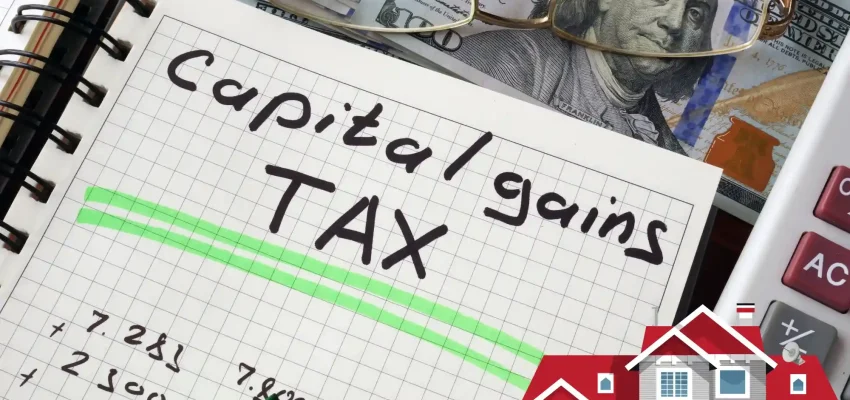When selling a property, many homeowners and investors wonder if they will have to pay capital gains tax (CGT) on the sale. Capital gains tax is a tax levied on the profit made from the sale of an asset, such as real estate. Whether or not you will have to pay CGT depends on various factors, including the length of ownership, the sale price, and the country or region you reside in.
In this article, we will explain what capital gains tax is, how it applies to property sales, and what factors can influence whether you owe tax on the sale of your property. We’ll also discuss how financial products like the HSBC Select credit card and abdiaead swift code can help with property transactions and related financial matters.
Understanding Capital Gains Tax on Property Sales
1. What is Capital Gains Tax (CGT)?
Capital gains tax is a tax imposed on the profit made from selling an asset. In the case of real estate, CGT is applied to the profit you make from selling your property, whether it’s a rental property, investment property, or even your primary residence. The tax is usually calculated based on the difference between the sale price and the property’s original purchase price, adjusted for any improvements or associated costs.
2. How Does Capital Gains Tax Apply to Property?
When you sell a property, the capital gain is typically calculated by subtracting the cost of purchasing the property from the sale price. This includes:
- Original purchase price
- Improvement costs (such as renovations or repairs that add value to the property)
- Selling costs (such as agent fees, legal fees, and closing costs)
The result is your capital gain, and this is the amount that is subject to capital gains tax. However, there are various exemptions and deductions that may apply, especially when selling your primary residence.
Key Factors Affecting Capital Gains Tax on Property Sales
1. Length of Ownership
In many countries, the length of time you have owned the property will affect how much capital gains tax you owe. The longer you’ve owned the property, the more favorable the tax treatment can be. For example, in some regions, properties held for more than a certain number of years may qualify for a reduced tax rate or exemption.
- Short-term vs. Long-term Capital Gains: Short-term capital gains (for properties held for less than a year) are often taxed at a higher rate than long-term capital gains (for properties held for over a year).
2. Exemptions for Primary Residences
In some countries, there are exemptions available for the sale of your primary residence. For example, in the U.S., if you meet certain conditions, you may be eligible to exclude a portion of the capital gain from taxation. This exclusion may apply if you’ve lived in the property for at least two of the past five years.
The rules vary by country, so it’s important to check the specific tax laws in your region to see if any exemptions apply.
3. Tax Rates and Deductions
Capital gains tax rates can vary significantly depending on the country, the amount of gain, and the type of property being sold. Some countries have a flat tax rate, while others apply different rates for short-term and long-term gains.
Additionally, some regions offer deductions for certain expenses related to the property sale, such as renovations, legal fees, or real estate agent commissions. It’s important to keep track of all these expenses, as they can help reduce the amount of tax owed.
HSBC Select Credit Card
While dealing with property transactions and potential capital gains tax, managing your finances effectively is essential. If you’re purchasing another property or need to cover unexpected expenses related to the sale, a HSBC Select credit card could help.
The HSBC Select credit card offers a range of benefits, including cashback and rewards on purchases, which can help you offset some of the costs associated with selling or purchasing a property. Additionally, using a credit card responsibly can help you manage any unforeseen expenses, such as tax obligations, during the property sale process.
International Transactions and Capital Gains Tax
1. Currency Exchange and Capital Gains
If you’re selling a property in a foreign country, you might have to deal with currency exchange rates, which can impact the final amount of your capital gain. When you convert your sale proceeds into your home currency, fluctuations in the abdiaead swift code can either increase or decrease your final proceeds, affecting the amount you owe in taxes.
When dealing with international property sales, understanding the abdiaead swift code is essential for processing international wire transfers. This code ensures that funds are securely and accurately transferred to your bank account, especially when dealing with foreign buyers or lenders.
2. Paying Capital Gains Tax Across Borders
For individuals involved in international transactions, it’s important to know whether you are liable to pay capital gains tax in both the country where the property is located and in your home country. Some countries have tax treaties that may allow you to avoid double taxation, while others may require you to pay taxes in both locations.
It’s advisable to consult with an international tax expert if you’re selling a property abroad to ensure that you are complying with all tax regulations and taking advantage of any applicable treaties or exemptions.
Tips for Reducing Your Capital Gains Tax Liability
While you can’t always avoid paying capital gains tax, there are strategies to reduce your tax liability. Here are a few tips to help minimize your CGT obligations:
1. Take Advantage of Tax Exemptions
If you’re selling your primary residence, check to see if you qualify for any exemptions. Many countries offer tax breaks for homeowners who meet specific criteria, such as living in the property for a certain number of years.
2. Offset Gains with Losses
If you have other investments that have performed poorly, you may be able to use those losses to offset your capital gains. This is known as tax-loss harvesting, and it can help reduce your overall taxable income.
3. Consider the Timing of Your Sale
The timing of your property sale can impact the amount of tax you owe. If possible, consider holding onto the property for a longer period to benefit from long-term capital gains tax rates. You might also want to plan your sale around changes in tax laws to maximize your savings.
Conclusion
Understanding capital gains tax on property sales is an important aspect of homeownership and real estate investment. While the tax is generally applied to the profit made on a property sale, the specific details of how it applies can vary depending on factors like the length of ownership, exemptions for primary residences, and tax laws in your area.
Financial tools such as the HSBC Select credit card and the abdiaead swift code can help you manage the financial aspects of property transactions, especially when dealing with international sales or large property-related expenses.
By understanding the rules surrounding capital gains tax and using the right financial tools, you can make more informed decisions when buying or selling property and manage your tax obligations more effectively.














